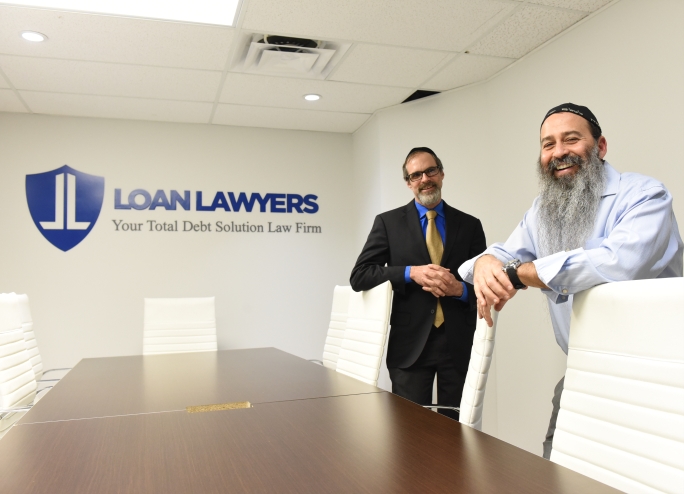Student Loan Forgiveness
If your student loan debt has become overwhelming and you struggle to make your monthly payments, our student loan debt lawyers can help you apply for and be accepted into student loan forgiveness programs.
Depending on the type of student loan debt in question, options may be available to get some or all of your student loan debt forgiven with no penalty. Loan forgiveness is rare, however, and usually available only in limited circumstances, most frequently to people employed as teachers or who work in the public service sector.
In addition, you may have only a limited window of eligibility for many student loan forgiveness programs. This is why it is critical to speak with our student loan debt attorneys as soon as possible to determine your options and eligibility for student loan forgiveness.
Student Loan Deferral
Student loans take years, even decades, to pay off. Something may occur during those years or decades that leave a borrower unable to make payments. For example, a borrower may lose their job or may become ill or disabled and unable to work.
That is why, for many kinds of student loans, a borrower may be able to seek a temporary deferral or forbearance of student loan payments. In a deferral or forbearance, you are allowed to temporarily stop making payments on your student loans, with no negative impact on your credit report or credit score.
You are expected to resume making payments at the end of the deferral or forbearance period or when you are financially capable. In addition, you will continue to incur interest on the loan principal during the deferral or forbearance period.
If you are dealing with financial or personal challenges that make it hard for you to meet your student loan payment obligations, speak with a student loan debt attorney as soon as possible to understand your options and eligibility for student loan deferral or forbearance. At Loan Lawyers, we have helped thousands of people obtain temporary relief from their student loan obligations when life circumstances change.
Student Loan Discharge
Student loans are unlike many other types of debt, such as credit card debt, car loans, or home mortgages, in that they usually cannot be discharged through traditional means such as bankruptcy. Many student loan programs, however, include conditions in which a borrower can seek a discharge of their student loan obligation.
A borrower may be entitled to seek a discharge of student loan debt if:
- Their educational institution fails to meet legal or credentialing requirements leaving graduates unable to use their degree or seek employment in their field of study.
- The institution closes during a student’s course of study.
- The institution owes refunds to the student.
- A borrower suffers a permanent total disability and is unable to return to gainful employment.
Our attorneys have more than 100 years of combined experience helping people struggling under the weight of student loan debt. Let our legal team put the law to work to help protect you and your rights. At Loan Lawyers, we will thoroughly examine your case and provide advice about your potential rights and options for a loan discharge or other relief from your loan obligations.
How to Stop Student Loan Wage Garnishment
If you have defaulted on your student loans and are being threatened with wage garnishment, you have options for avoiding or stopping the process. A wage garnishment is a court-ordered attachment on your paycheck in which your employer is required to automatically deduct money from your salary to repay a loan or other obligation.
If possible, you should try to continue to make your monthly payments to avoid your pay being garnished.
If making payments is impossible, you can apply for a loan repayment option such as an income-based or income-contingent payment plan. Alternatively, you can also apply for a deferment or forbearance of your payments if you have had a significant change in circumstances such as losing your job or suffering a medical emergency.
If you are facing an immediate threat of wage garnishment, there are other options to explore. You can apply for a direct consolidation loan, which will combine all your outstanding federal loans into a single payment. This student loan consolidation may be less expensive than paying multiple separate loans. However, you may end up paying more interest.
Alternatively, you can apply for a loan rehabilitation agreement. Under this agreement, you promise to make payments during a probationary period. As long as you make the required payments, your loan servicer will work with you to try to reduce your payments down to a percentage of your discretionary income.
If you, or a family member or friend, have the assets to do so, you can avoid wage garnishment and the resulting negative effect on your credit by paying off the loan or loans in full.
What You Need to Know About Bankruptcy and Student Loan Debt
Unlike many other kinds of debt, student loan debt generally cannot be discharged in bankruptcy. The bankruptcy code does allow courts to discharge student loans, but only if the bankruptcy judge makes a specific finding that continuing to impose the student loan obligation would impose an undue hardship on a debtor.
Some courts will discharge an entire student loan debt upon a showing of undue hardship, while other courts will discharge only a portion of the debt to the extent that the remaining balance no longer imposes an undue hardship on the debtor.
Courts also use different tests to determine whether a debtor would suffer undue hardship from student loans. Some courts look at the totality of the circumstances, examining all relevant factors. Other courts look solely at three factors:
- Whether payment of the loan would leave you unable to maintain a minimal standard of living
- Whether your current financial situation is likely to persist for much of the repayment period
- Whether you have made a good-faith effort to repay the loan























